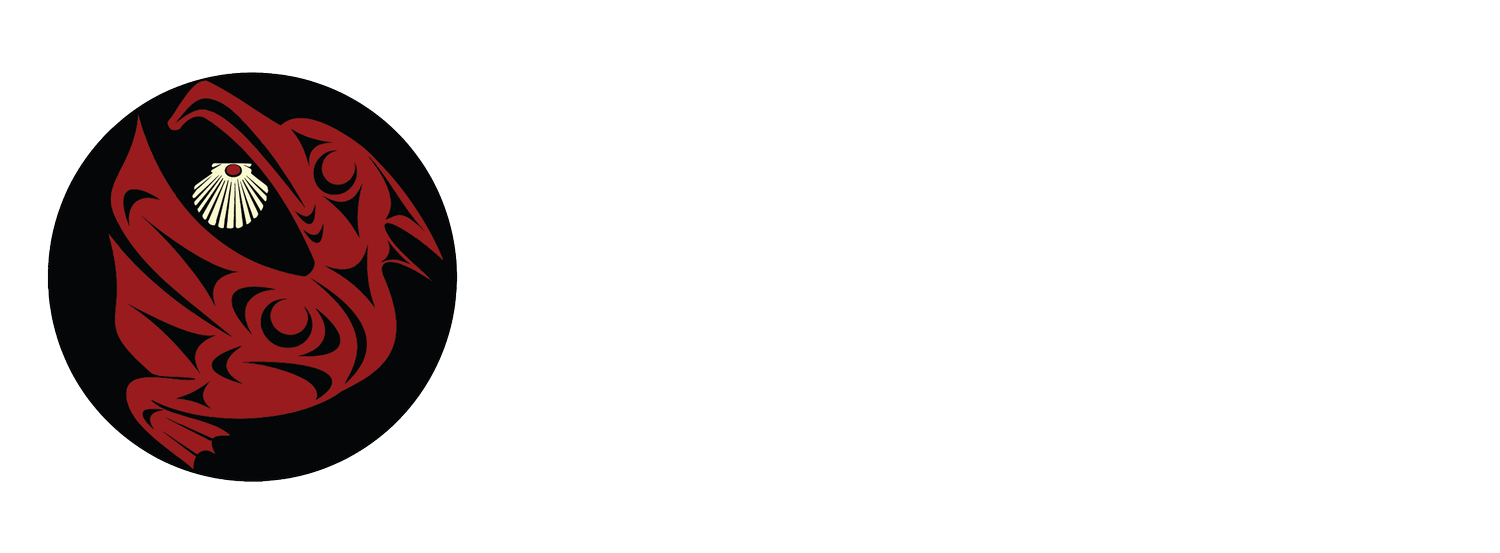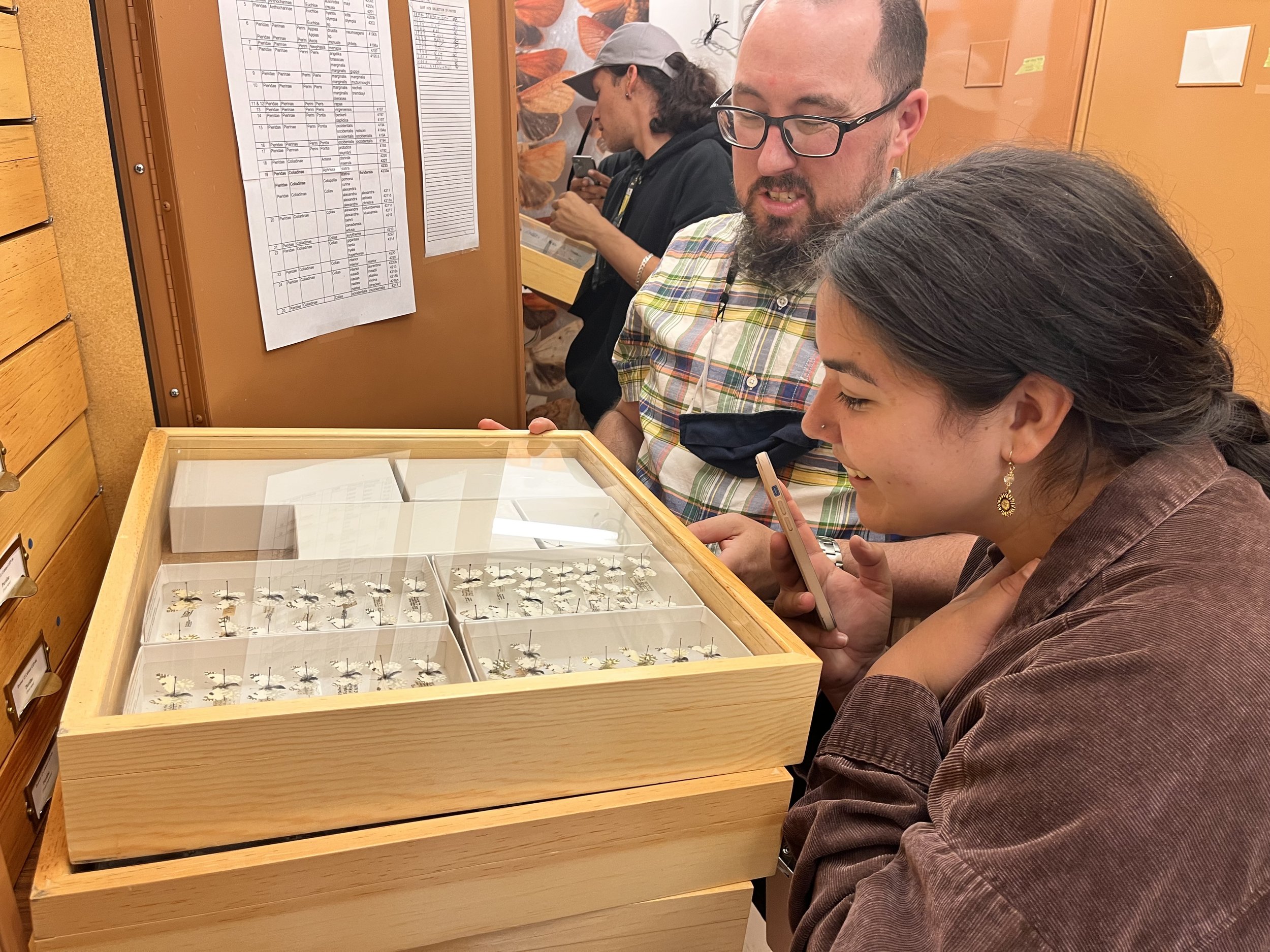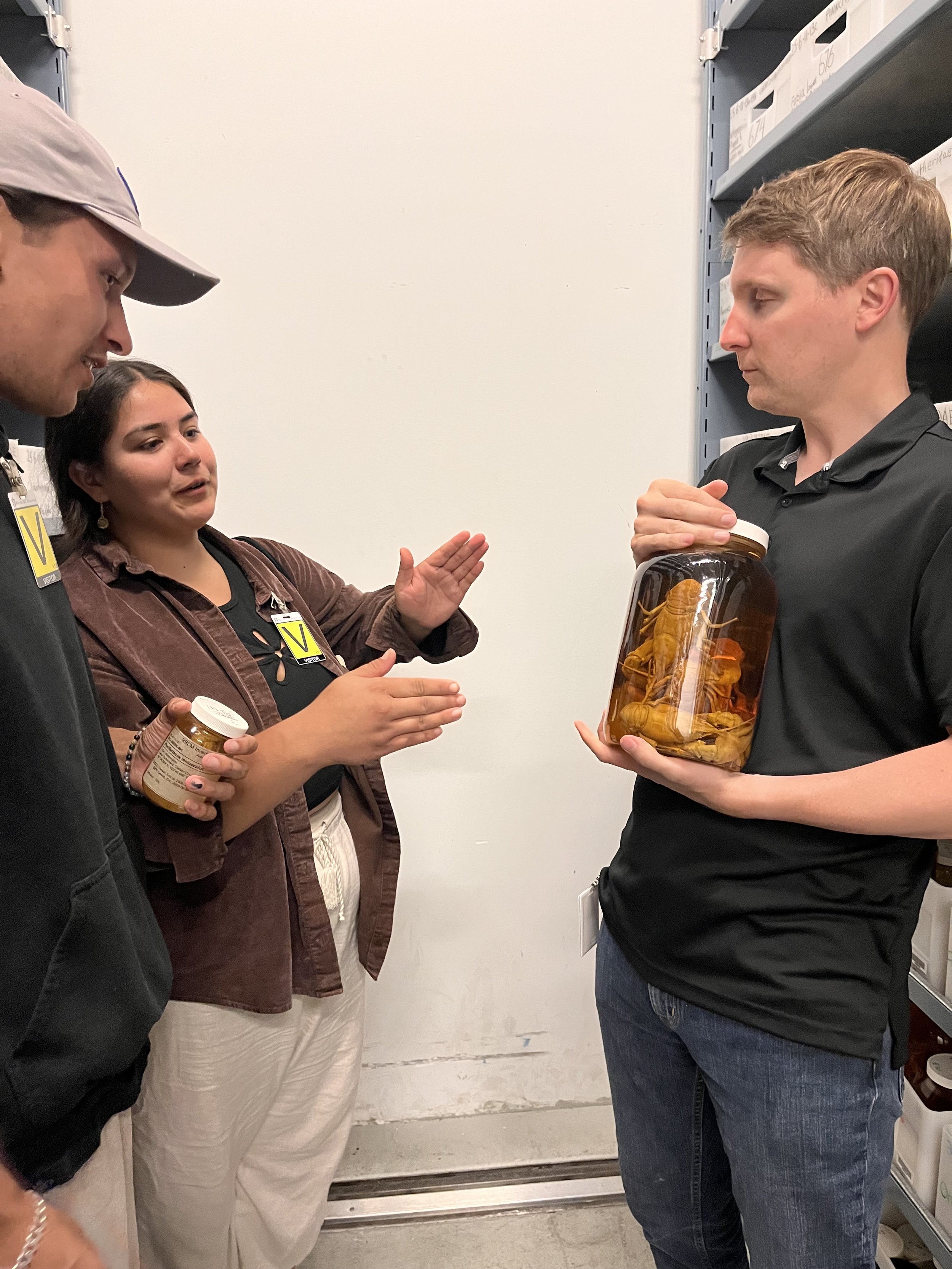A Royal BC Museum Collection tour for Stqeeye’ Land Stewards
Stqeeye’ was recently lucky enough to be invited to tour two of the curated collections, Entomology and Invertebrates, getting behind the scenes for a day. Here are some photos of our day, and the wonderful things we got to see. From type specimen’s for some of our local insects, to tropical wonders, to wonderful historic samples of some of our rarest butterflies, to flotsam and jetsam from Japan’s 2011 tsunami, and even rare invertebrates that climate change is bringing to our shores, we got to see into another world of the beautiful natural history of our province.
Maiya Modeste views the extant Island Marble butterfly with Entomology Curator Joel Gibson. This butterfly would normally be prolific in her Grandmother’s Garden Garry Oak ecosystem, but has been pushed out by habitat loss and habitat changes in Canada’s rarest ecosystem.
Invertebrate Curator Henry Choong shows Stqeeye’ staff how specimens that are collected by other provincial agencies make it into the curated collection.
The RBCM is going through a massive period of change. With a desire to do a better job of working with the Indigenous people of BC, the museum decided to close many of it’s classic displays, because they didn’t adequately address the genocide and pain of assimilation or the effect that the settler history has had on the original inhabitants of this land. Nor had the nations been consulted about any of the displays, nor compensated for stolen artifacts. Therefore, the Indigenous displays are now quite different or closed to the public while the museum grapples with how to repatriate many of the totems and masks that it has in it’s possession, and a new approach is being championed in all of the displays that will bring more honour to all of the people who make up our planet.
We felt grateful to be able to see how the curated collections are kept safe, how the collected specimens represent a snapshot into the past for many of the species, and how many species are still not well studied from our corner of the world. We hope to continue to help bring more awareness to Xwaaqw’um species with the help of the Museum staff, and are excited to know that some of the flies and wasps we helped to collect over the last few years are now in the museum collection.
Joel wanted us to know, and share, that these specimens belong to all British Columbian’s and that when we have an idea about how to study an insect or a group of invertebrates, they are there to help. They also accept volunteers in their wing, as there are years and years of donated specimens to sort through and label and database. We know we will be back again, and each time we find something weird, we are keeping it for them to see!



















